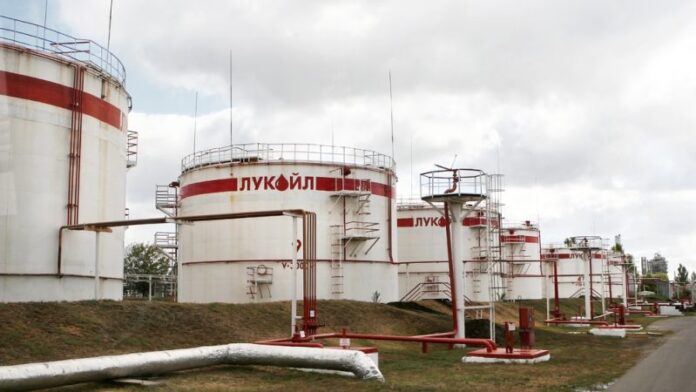The “need to find a strategic buyer” for the Lukoil Neftochim refinery in Burgas and the possibilities of reducing dependence on Russian gas and oil in the Balkan region were discussed by a Bulgarian government delegation during its visit to the US, the Finance Ministry said on Wednesday, according to Euractiv.
Finance Minister Asen Vassilev, who led the delegation, met in Washington with Amos J. Hochstein – the US President’s Special Coordinator for Global Infrastructure and Energy Security.
The Bulgarian government did not provide any specific information on the potential interest of US strategic investors in the oil business of the Russian company, which has already admitted that it is considering selling its business in the country.
The Lukoil refinery is the largest in the Balkans and is strategically important for the Bulgarian economy and industry. It is also of great importance to the region as it is the main supplier of jet fuel.
Azerbaijan’s state energy company SOCAR has shown the most serious interest in acquiring Lukoil’s Bulgarian operations in the oil sector, according to Euractiv’s unofficial information from government sources.
The Azeri company owns one of the largest refineries in Turkey, where it also works with Russian oil.
The risk for SOCAR is that the EU is trying to control oil imports through Turkey, with the geopolitical situation being the main obstacle to this deal, sources told Euractiv.
Other potential investors are US companies, but they cannot be considered strategic investors due to their lack of experience in the oil market or the relatively small size of their assets.
None of the major American and European oil companies have shown interest in buying the Russian company’s assets in Bulgaria, Euractiv’s sources said.
Lukoil’s refinery in Bulgaria will no longer be able to process Russian oil after March 2024, following the adoption by the Bulgarian parliament late last year of a timetable for ending imports. Since January, the refinery has not been allowed to export fuels made from Russian oil.
In early December, Lukoil announced that it was beginning to review its strategy for its Bulgarian assets and that “with the help of international consultants, various options are being analysed, including the sale of the business”.
In the US, the Bulgarian delegation also discussed plans to develop the Vertical Corridor through the Balkans, increasing the transit of liquefied natural gas through Bulgaria. This will be done by increasing the capacity of existing gas connections between Greece, Bulgaria, Romania, Hungary, Slovakia, Moldova and Ukraine.
The US has given its support to this corridor, which is expected to be supplied with American gas, and the possibility of American investment in it has also been discussed, according to the Bulgarian Finance Ministry.


